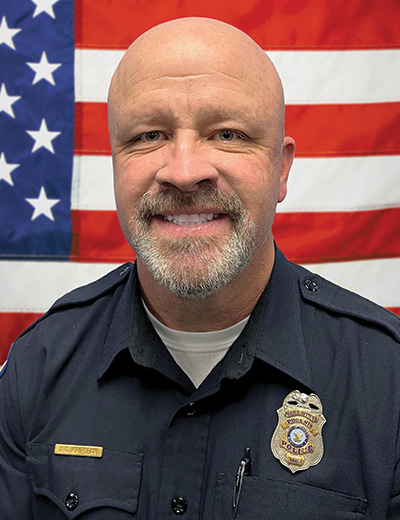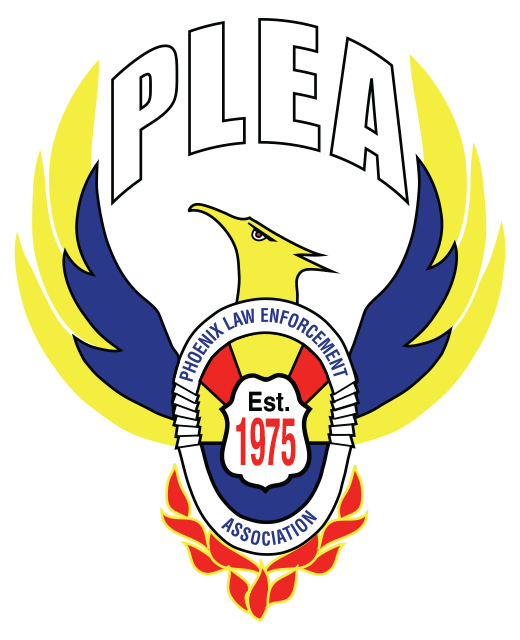
President
dkriplean@azplea.com
PTSD is a greater cop killer than all the guns ever fired at police officers” (Allen Kates from his book, CopShock). This may be surprising to some as PTSD is often believed to be specific to our military personnel returning from war-torn regions of the world. PTSD, however, afflicts police officers at an astonishing rate. Most go undiagnosed as we try to make sense of the feelings we are having that sometimes resort to compulsive or addictive behaviors in an attempt to self-medicate. While military personnel are expected to suffer from it and are encouraged to get treatment, police officers are often expected to “tough it out.”
Consider this: Police officers are called to perform during the most tragic times in a person’s life. There are the unending calls for service involving domestic violence, child abuse, serious injuries and fatal car crashes. These calls chip away at us year after year until, one day, it becomes too much for us to handle. Retired LAPD Detective William Martin stated that “Our responses to violence are so subtle and long term that we do not realize what is happening to us until we begin to lose what is most important in our lives: our families, friends, health, spirituality, honor, commitment and sense of self-worth.”
Think about your own life. Are you more irritable with your children or spouse than you were at the beginning of your career? Do you prefer to stay home rather than spend time with friends? Are you consistently taking more risks at work? If you self-reflect and can detect these differences, you may have symptoms of PTSD. We all understand that an officer involved in a shooting may suffer symptoms of post-traumatic stress. What we, and everyone else, need to accept is that the events we are exposed to on a daily basis could have just as dramatic an effect on us.
These calls chip away at us year after year until, one day, it becomes too much for us to handle.
Many studies have been performed regarding police and PTSD, and they have shown that while hypervigilance is good for an officer to have, it can also be a subtle sign of PTSD. Think about the last time you took your family out to eat and had to sit in a position with your back to the wall, or at the very least, had to have a clear view of the front door and most of the patrons. We are constantly aware of people’s hands, especially when they are within five to seven feet. Now, I am not suggesting that because we all tend to have these “habits” we all suffer from PTSD, but I will say that it can be a symptom of something deeper.
A single traumatic event is enough to cause the disorder in some officers. If that officer then applies for workers’ compensation, it is typically easy to associate the event with the injury. The challenge becomes when you are exposed to a series of microtraumas over a period of years. No one knows how many of these we can absorb before the bucket is full and the next microtrauma is one too many.
On April 23, 2018, then-Governor Doug Ducey signed HB 2502, also known as the Craig Tiger Act, into law. This was a huge step in acknowledging the trauma police officers endure. It guarantees up to 36 visits with a licensed professional. In addition, the appointments will be during your duty hours. The sooner trauma is treated, the more likely it is that the individual suffering can return to a healthy way of life, which translates into a healthier and happier employee.
Workers’ compensation laws are very difficult when it comes to repeated exposure to trauma. In fact, a case was recently decided by the Arizona Supreme Court that ruled that a diagnosis of PTSD due to a cumulation of trauma over time is not compensable (France v. Industrial Commission of Arizona). Unless an officer experiences a single traumatic incident giving rise to PTSD symptoms, such as a gunshot wound, the claim will be denied.
Keep in mind that the Industrial Commission of Arizona requires a claim to be filed within one year from the date of injury or when the injured worker became aware of the condition.
This article is simply the tip of the iceberg. The goal is for officers to get help somehow, someway. If the officer does not realize what is going on, a family member or friend may recognize behaviors that could be associated with PTSD and help the officer seek help before it is too late. There are local organizations that can provide assistance. One is named Post Incident Stress & Trauma in Law Enforcement, which can provide peer support and information on training, advocacy, family support and treatment options. More information can be found by visiting their website at pistle.org. The website also features a PTSD checklist and symptoms of acute stress checklist. Under the Shield (Undertheshield.com) is another organization where help can be found. Bulletproof (bulletproof.org) and Copline (Copline.org) are both organizations created to assist officers anonymously. There is a multitude of books out there as well. One specific book that I read and found to be very resourceful is CopShock by Allen R. Kates. You can also contact the Employee Assistance Unit. Everything you tell them is held in the strictest confidence.
Know that you are not alone in this, and reach out if you find yourself in need. There is no shame in asking for help. If you have any questions or if I can be of help in any way, please contact me at the PLEA office or at dkriplean@azplea.com.
